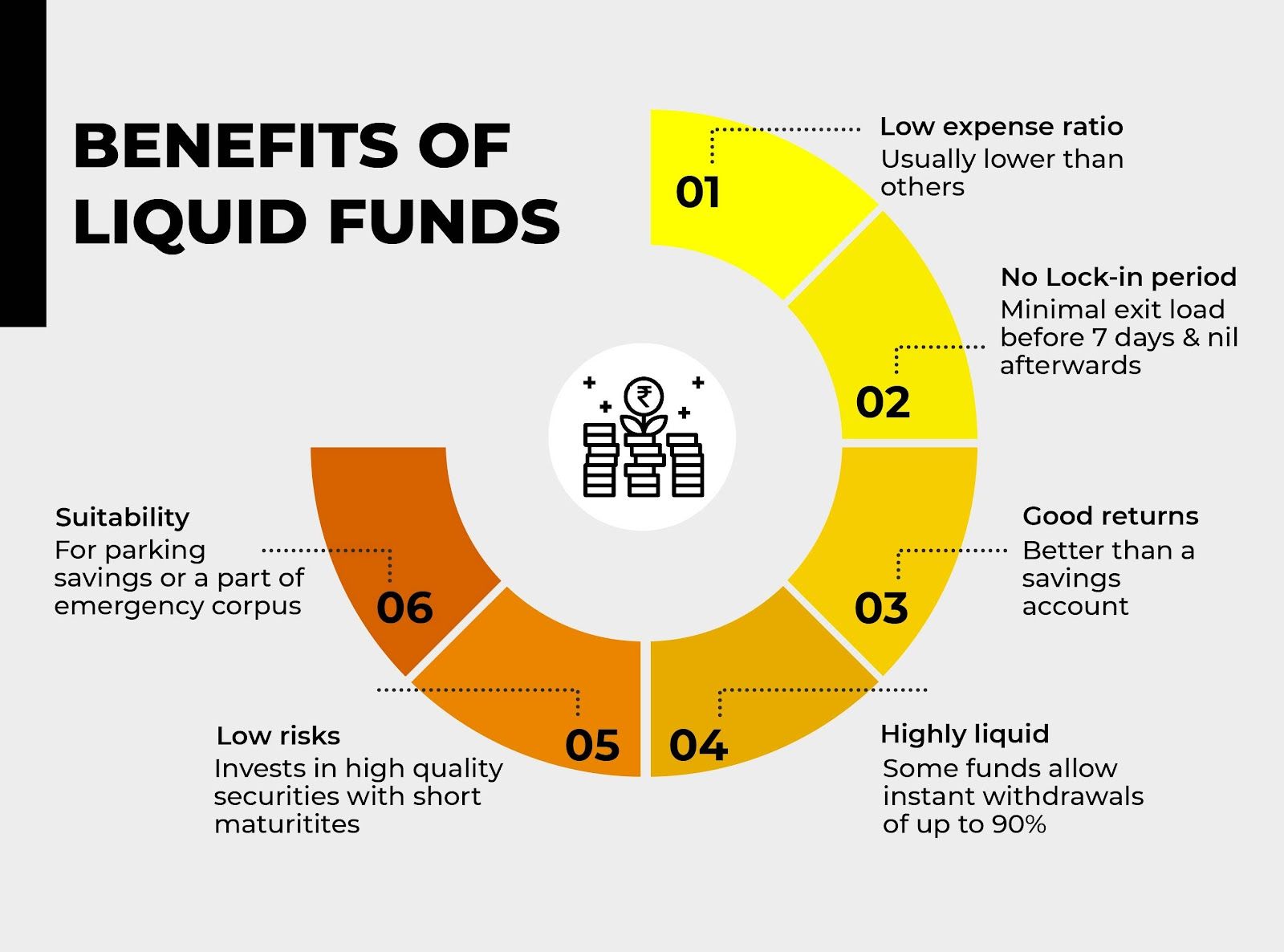What is Liquid Mutual Funds and Its Benefits
Liquid mutual funds are a type of mutual fund that invests in short-term debt instruments and money market securities. They offer high liquidity and low risk, making them a good option for investors looking to park their money for a short period of time. Learn more about liquid mutual funds and their benefits in this article

Mutual funds are frequently cited as being among the most effective ways to make an investment in the stock market. One of the reasons for this is that there are many distinct sorts of mutual funds, and each of these types caters to a particular set of financial objectives and levels of comfort with financial risk. On the other hand, the greater the number of available options, the more difficult it is to select the appropriate investment vehicle.
If you want to be able to make a good investment decision, you need to have a good understanding of the different types of mutual funds that are available. In this piece, we're going to take a look at liquid mutual funds and the advantages that come along with investing in them, as well as the perks that you get to experience as a result of your investment. The definition of liquid mutual funds is our first topic of discussion, so let's get right to it without further ado.
What is a Liquid Mutual Fund?
Liquidity in the stock market is the measure of how easy it is to convert an asset into cash and vice versa. An asset that’s easy to buy and sell in the market is said to be highly liquid.
A liquid fund is a type of mutual fund that pools money from investors and invests predominantly in highly liquid instruments. This includes money market and debt instruments with short tenures such as Treasury Bills (T-Bills), Certificates of Deposit (CDs), Commercial Papers (CPs) and Collateralized Lending & Borrowing Obligations (CBLOs). Most of the instruments that liquid mutual funds invest in have tenures of up to 91 days, which makes them very liquid. Redeeming the units of a liquid fund is also very easy and takes only T+1 day to process.
What are the Benefits of Investing in Liquid Mutual Funds?
Now that you’ve understood the meaning of liquid mutual funds, here’s a closer look at some of their benefits.
1. High Liquidity
As previously observed, the primary characteristic of liquid mutual funds is their high liquidity. The majority of traditional fixed-income instruments have a lock-in period that requires you to remain invested until the conclusion of the lock-in or the maturity date. With liquid funds, however, you need not remain invested for longer than you desire.
First, the term itself is extremely brief. And secondly, you can redeem your units at any time prior to the expiration of the term without any complications. Once you submit a redemption request, the funds will be deposited into your account within T+1 business days.
2. Low Volatility
Since liquid mutual funds typically invest in money markets and debt instruments, they do not experience as much volatility as, say, equity-based funds. This makes it an excellent investment option for the elderly and those with a low risk tolerance.
3. Low Default Risk
Mutual funds that invest in government-backed securities carry no default risk. In addition, they invest in corporations' debt and money market instruments. However, these instruments are typically rated AAA or higher by credit rating agencies. Due to their high ratings, liquid mutual funds bear little to no risk of default.
4. Low Expenses
The expense ratio is the fees that the mutual fund house charges the investor for administering the fund. The fact that liquid mutual funds have very low expense ratios relative to other mutual funds is a significant advantage. This ensures that your costs remain low and that your profits do not take a significant impact. In addition, the majority of liquid funds do not impose exit fees, so your returns will not be affected when you make a redemption request.
5. Better Returns
The majority of risk-averse investors and senior citizens favor bank deposits because they perceive them to be significantly safer than other investment options. Despite the fact that this may be partially true, the returns on these investments are typically lower. In contrast, liquid mutual funds generate returns in the 7% to 7.5% range, which is higher than most bank deposits.
6. Ideal for Parking Idle Funds
A savings account is the most common place for investors to keep their liquid assets. earnings from a savings bank account, however, are normally between 3% and 6%, making them lower than the average earnings produced by a liquid mutual fund. This is why it's a good idea to keep any extra cash on hand in liquid funds rather than leaving it sitting in a savings account.
7. Price Discovery
Most other mutual funds don't make their NAVs public on weekends. The NAV of a liquid mutual fund, on the other hand, is determined daily, including weekends. While other types of mutual funds use historical data to determine prices, liquid mutual funds use a real-time process to determine prices.
Also read :-Best Performing Mid-Cap Mutual Funds In 2023
Conclusion
You should now have a firm grasp on what a liquid mutual fund is and the many benefits it may provide. Consider investing in liquid mutual funds if you want a low-risk investment option with easy access to your money.
However, you need register a demat account before making any investments. It is essential preparation for buying stocks, bonds, or participating in an initial public offering (IPO). Visit Motilal Oswal today to open a Demat and trading account at no cost to you.

















.jpeg?updatedAt=1700924747229)



